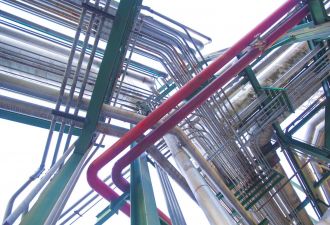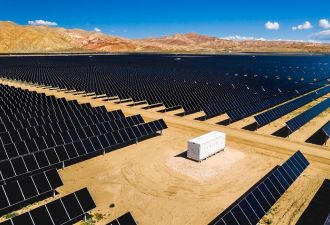When it comes to solar power and energy efficiency, we don't have a technology problem -- we have a financing problem.
The cost of solar panels has plummeted dramatically in the last few years and talk of "grid parity" in solar pricing is becoming realistic in certain regions. But solar's upfront cost remains prohibitively expensive for most homeowners.
A residential solar system can cost $20,000 to $50,000, even with generous subsidies. It's like paying your electric bill for the next 20 to 30 years in advance. And if you move or sell the house, what happens to the panels? Do you take them with you? Can you get meaningful value for them from the new owner?
Firms like SolarCity and SunRun provide residential leasing options and that can take away some of the sting. And businesses have a variety of Power Purchase Agreement (PPA) companies to provide financing -- but then you don't own the panels.
There is now another option.
Oakland's Renewable Funding creates programs that allow residents and small businesses to borrow money to finance solar, energy efficiency or water saving improvements and pay the money back over 20 years via their property taxes. It's called PACE --- property-assessed clean energy. It's essentially a voluntary special property tax.
Renewable Funding makes money with 1) an online application fee and 2) a fee from the financing program itself. Joe Biden has the hots for it.
San Francisco Mayor Gavin Newsom just inked legislation to make $150 million available for lending to residents and businesses for the city's own PACE program. The San Francisco legislation is the nation's largest program to date, with the potential for thousands of San Francisco households to reduce their water and energy usage with very little upfront cost.
I spoke with Cliff Staton, the VP of Marketing at VC-funded Renewable Funding. He said, "Property owners can make energy efficiency investments in their property --- all through a groundbreaking new financial tool," adding "it eliminates the up-front cost barrier."
According to Staton, their PACE program allows for a very simple process when there is a change of ownership. It's akin to a hospital bond or a school bond. "All those assessments stay with the house," said Staton. And it could be a selling point in the sale of a home --- a home that comes with a lower energy bill.
Depending on the locality, the PACE program covers capital improvements in the home such as solar panels, new insulation, new windows, low-flow toilets and taps, and rain catchment systems. The improvements have to be long-term, though, so CFLs don't count.
The PACE model was spearheaded by Renewable Funding founder Cisco DeVries in Berkeley, California. The idea is spreading across the U.S -- 15 states and many more cities have authorized PACE programs over the last 18 months. In California the PACE program is administered through "California First."
According to Staton, as the program works with a more diverse set of property owners and the market for this type of financing grows, banks will come to recognize the lower risk and will likely respond with lower interest rates.
In Staton's words, "The big improvements and reductions in energy use will come as a result of energy efficiency, not through solar power." In fact, San Francisco requires an energy audit as part of the program.



